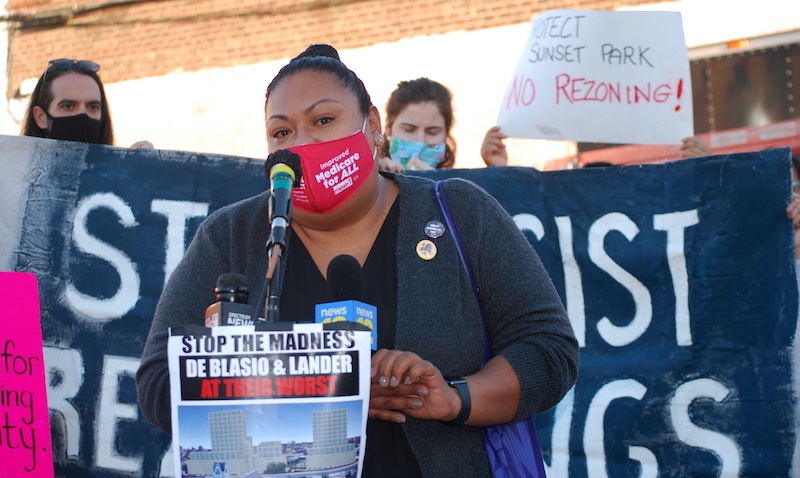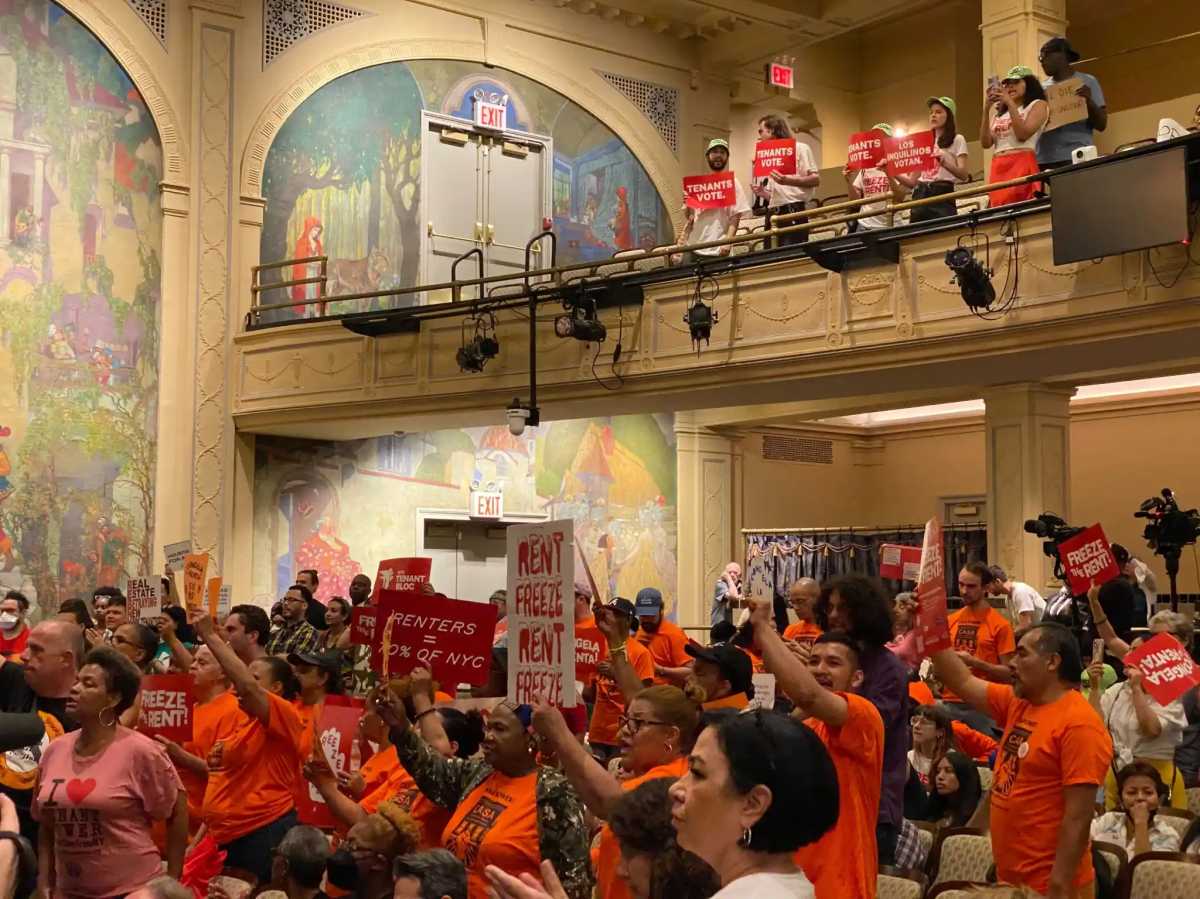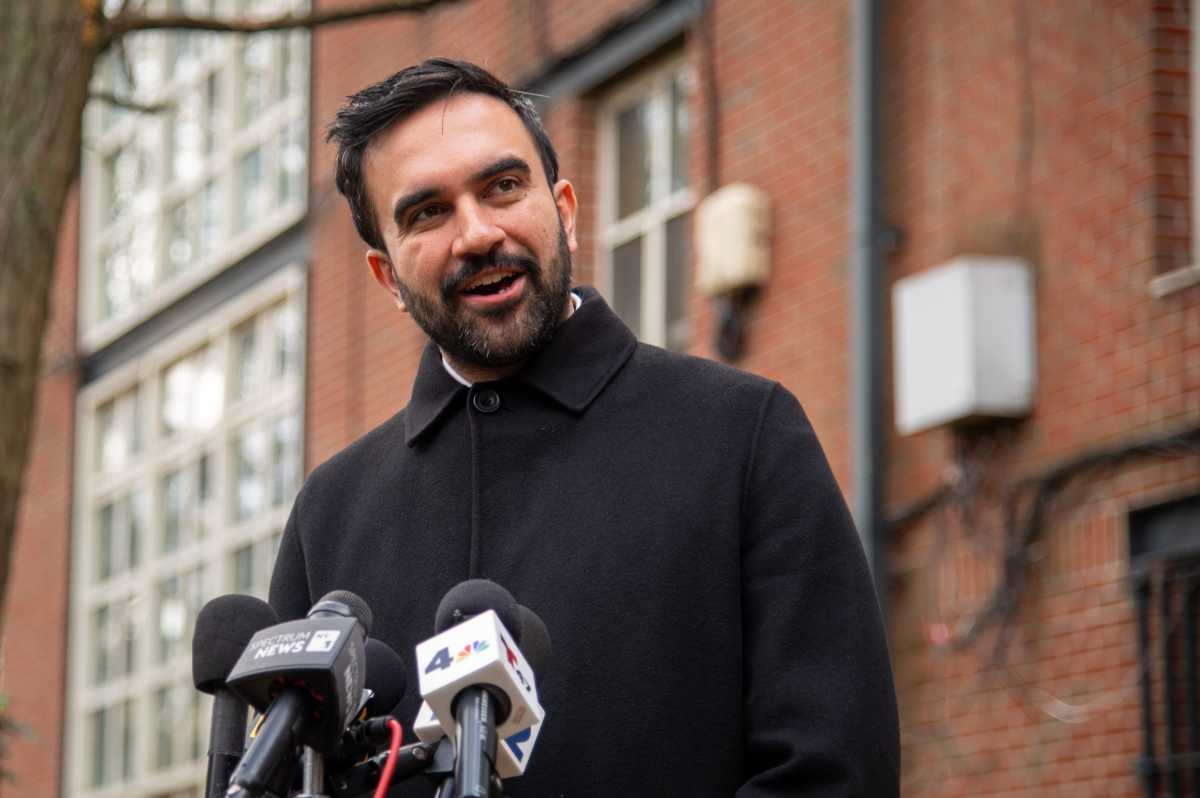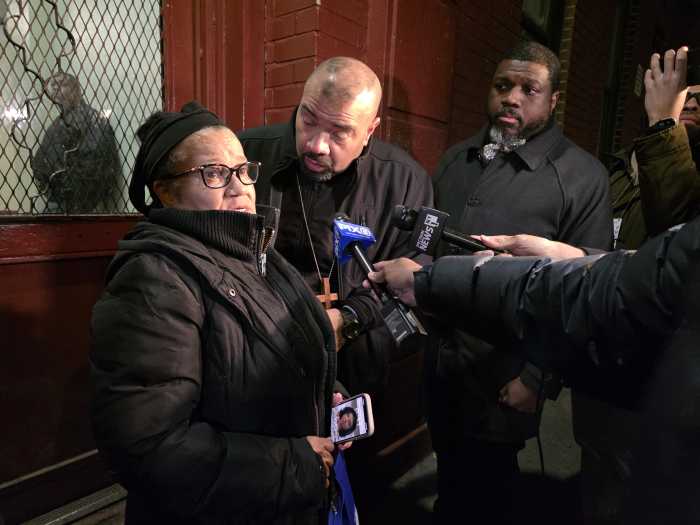Assemblymember-elect Marcela Mitaynes joined with Sunset Park community members and organizations on Monday, Nov. 9 to protest the new proposal and rezoning for a 14-story development site at 737 4th Avenue in Sunset Park.
The site is currently a one-story Dunkin Donuts with a fairly large parking lot. The proposal calls for a 14-story mixed-use residential and neighborhood retail space, with 25 percent of the residential units permanently affordable for low-income residents.
The plan is to extend the zoning in the neighborhood one block south from 25th Street. The ground floor will be about 12,000 square feet for businesses and will have an MTA easement and elevator into the 25th Street Station below.
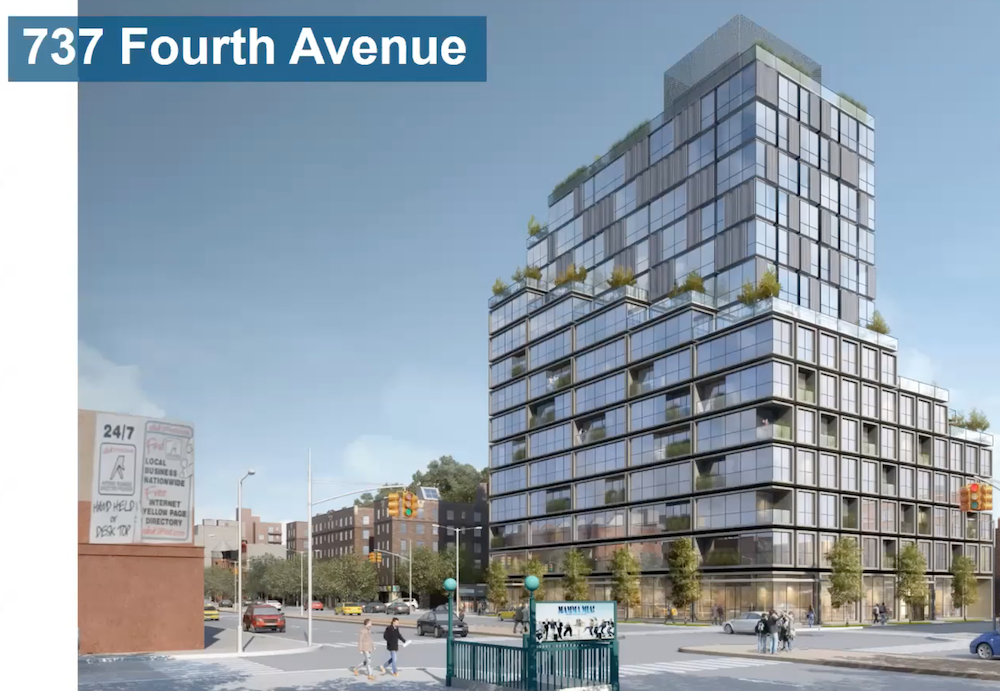
Residents and neighborhood leaders from Workers Justice Project, New York Communities for Change, and Mexicanos Unidos among others, said that the “luxury housing” will add “mostly market-rate housing to the working-class neighborhood of Sunset Park.”
“We want development that addresses the reality of the world we live in. We want development that produces dignity and addresses the crises that we’re going through. One of them is the homelessness crisis that affects predominantly Black and Brown people,” said Brian Garita, an organizer with Mexicanos Unidos. “The people who develop these luxury developments, somewhere in that process they get tax credits and cuts, and we want investment here.”
But Tucker Reed, the CEO of Brooklyn-based developer Totem, which is developing the project, maintains that labeling the project as luxury housing is unfair.
“While in spirit we would love to have 100 percent, this is privately owned land. We had to pay a significant amount of money for the land, and that just doesn’t allow us to do 100 percent affordable, despite outreach to the city for subsidies. They’re unwilling to,” said Reed. “We’re not building luxury condos here. There are no condos, and to call it luxury is fairly disingenuous given the fact that it’s meant to be workforce housing for people in the neighborhood.”
Reed said market-rate housing has been a narrative for any new development in the city and guesses that the image is synonymous with luxury, but is adamant that this is not the case. He said that some people feel that there should be no private land ownership, so they won’t agree with the project no matter how affordable it is.
If the building is approved, city law would require to set aside ‘affordable housing’ under Mayor Bill de Blasio’s controversial Mandatory Inclusionary Housing program (MIH). Many residents criticized the MIH program and private land developers for failing to create enough low-income housing.
“We need affordable housing but this is not the project to give it to us and at this moment I can’t support it,” said Mitaynes. “We need 100 percent affordable housing in perpetuity, and most importantly, they have to target the people who are most needy.”
Mitaynes said she knows intergenerational families that make $10,000 or $20,000 that can’t find housing and she doesn’t oppose development itself.
“This is not the time to build market-rate housing. We need to think about our future. Although building affordable housing is part of a long-term plan unless it’s catered to the neediest, it is of no use. What we’re seeing in communities of color is people with higher incomes coming in and very few of those affordable units really going to the people of the community,” said Mitaynes.
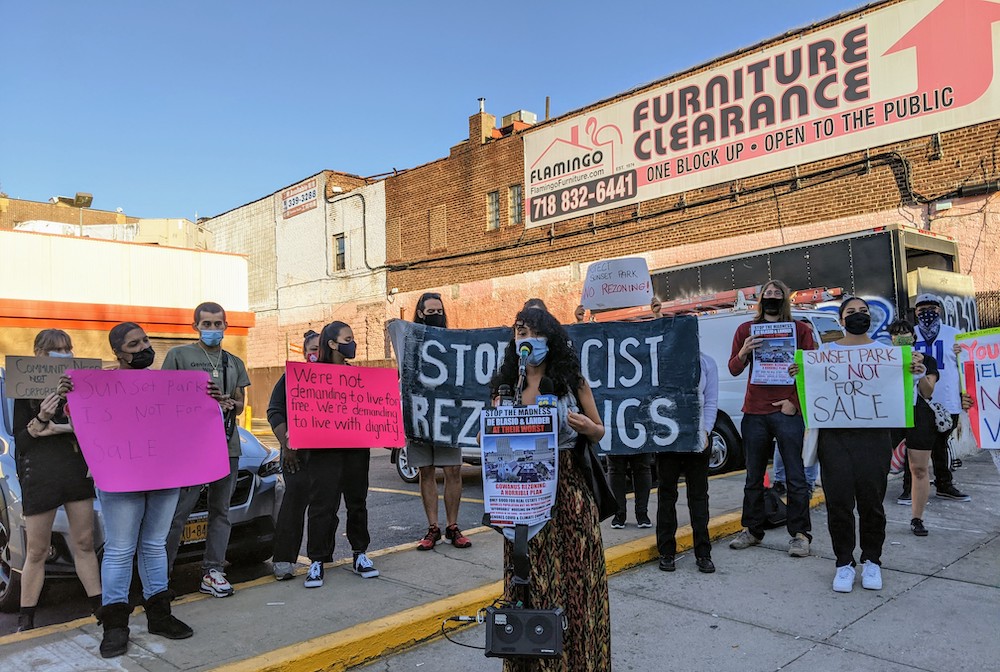
The biggest point of contention was that of the 140 units the ‘affordable’ part of the building would be 25 percent of apartments (nearly 40) as opposed to all of it, like the protesters were demanding. In addition to that, the community members said that the Area Median Income (AMI), which is defined by the state, used for determining these units is terrible.
The property was bought ‘as of right’ said Reed.
Reed said the apartments are supposed to be one- to three-bedroom units, and was taken into advisement after the community complained about studio apartments in the mostly immigrant, working-class, and family-oriented community not serving their needs.
The project is using an AMI, said Reed, that is lower than what’s required by the city’s program. It will include residents earning 30 percent of AMI – or $34,110 for a family of four– which is an attempt at matching the surrounding community income level.
Residents at the rally also complained that many companies did not hire construction workers and staff from within the community. Reed said they would like to work with the community board to create permanent jobs and a commitment to local hiring.
“We’ve been engaging with the community board for 18 months. We’ve had five meetings that have been over Zoom, because of the pandemic,” said Reed. “We’ve tried to engage in the collaborative process. The community has given us feedback on how to refine the project, like eliminating studio apartments to be more family-oriented.”
Community Board 7 District Manager Jeremy Laufer said whether or not the community believes in the project and what it promises is why they have public hearings.
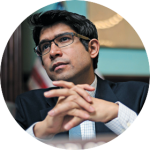
“The neighborhood’s voice is most important on this proposal and I look forward to the Community Board’s public hearing and subsequent vote. I have consistently stated my concerns with MIH and Sunset Park’s need for deeply affordable housing, but will prioritize what I hear directly from the community,” said Councilmember Carlos Menchaca (Red Hook, Sunset Park, Greenwood Heights and portions of Windsor Terrace, Dyker Heights, Boro Park), who represents the district.
The rezoning started the process on September 14, 2019, and is currently in public review, said the Department of City Planning (DCP). Community Board 7 is holding its hearing on this item on Thursday, November 12.


